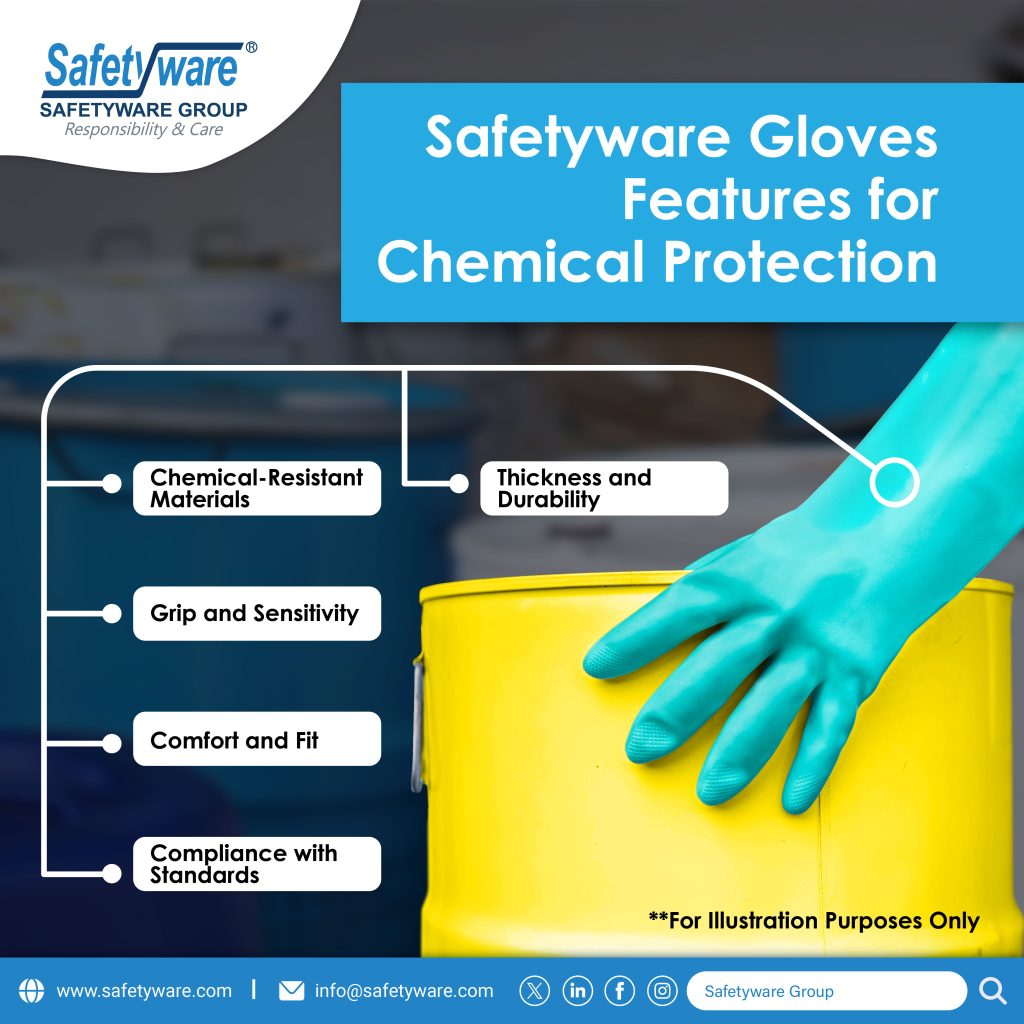
In industrial and laboratory settings where workers are exposed to various chemicals, ensuring proper hand protection is crucial to prevent injuries and maintain a safe working environment. Safetyware, a renowned provider of safety solutions, offers a wide range of gloves designed to provide effective chemical protection. This comprehensive guide explores the importance of Safetyware gloves in chemical protection and highlights key considerations for selecting the right gloves for different applications.
Understanding the Importance of Chemical Protection:
Chemicals can pose serious risks to the skin, leading to burns, dermatitis, and other health issues. Proper hand protection is essential to minimize exposure and prevent injuries when handling hazardous substances. Safetyware gloves play a vital role in safeguarding workers against chemical hazards, providing a barrier between the skin and harmful substances.
Features of Safetyware Gloves for Chemical Protection:
- Chemical-Resistant Materials: Safetyware gloves are made from specialized materials that offer resistance to a wide range of chemicals, including acids, solvents, oils, and corrosive substances.
- Thickness and Durability: The gloves are designed to be durable and provide adequate thickness to withstand exposure to chemicals without compromising dexterity.
- Grip and Sensitivity: Safetyware gloves offer excellent grip and tactile sensitivity, allowing users to handle objects and perform tasks with precision while ensuring protection.
- Comfort and Fit: The gloves are designed for comfort and a secure fit, reducing hand fatigue and ensuring that users can work effectively for extended periods.
- Compliance with Standards: Safetyware gloves meet industry standards for chemical resistance, ensuring that they provide the necessary protection for specific chemical exposures.
Selecting the Right Safetyware Gloves for Chemical Protection:
- Identify Chemical Hazards: Understand the types of chemicals present in the workplace to select gloves with appropriate resistance properties.
- Assess Glove Material: Choose gloves made from materials such as nitrile, neoprene, or butyl rubber based on the compatibility with the chemicals being handled.
- Consider Glove Length: Select gloves with the appropriate length to provide coverage and protection for the hands and wrists.
- Evaluate Dexterity Requirements: Balance the need for chemical protection with the requirement for dexterity to ensure that workers can perform tasks effectively.
- Check Glove Compatibility: Ensure that the selected gloves are compatible with other personal protective equipment (PPE) being used in the workplace.
Benefits of Safetyware Gloves for Chemical Protection:
- Worker Safety: Safetyware gloves help protect workers from chemical exposure and reduce the risk of skin injuries and health complications.
- Regulatory Compliance: Using appropriate gloves demonstrates compliance with occupational health and safety regulations related to chemical handling.
- Enhanced Productivity: By providing comfortable and protective gloves, Safetyware contributes to improved worker comfort and productivity.
- Cost Savings: Preventing injuries and illnesses through proper hand protection can lead to cost savings associated with reduced medical expenses and downtime.
In conclusion, Safetyware gloves are essential for ensuring effective chemical protection in the workplace. By understanding the features, selection criteria, and benefits of Safetyware gloves, employers and workers can make informed decisions to safeguard against chemical hazards and promote a safe working environment.
